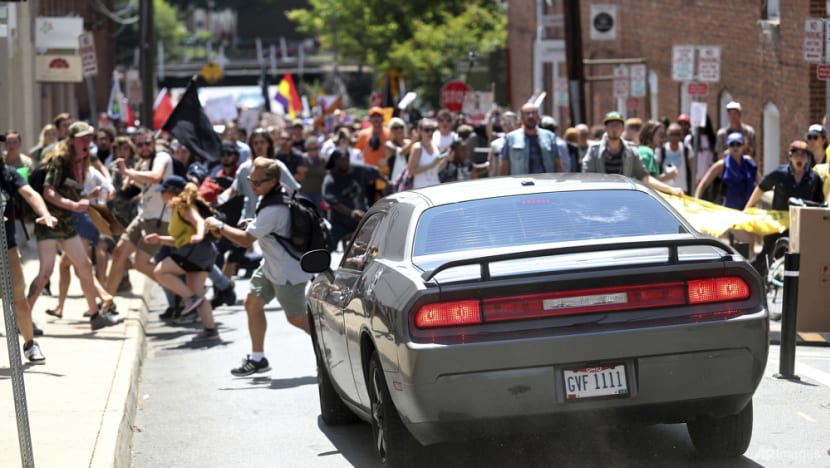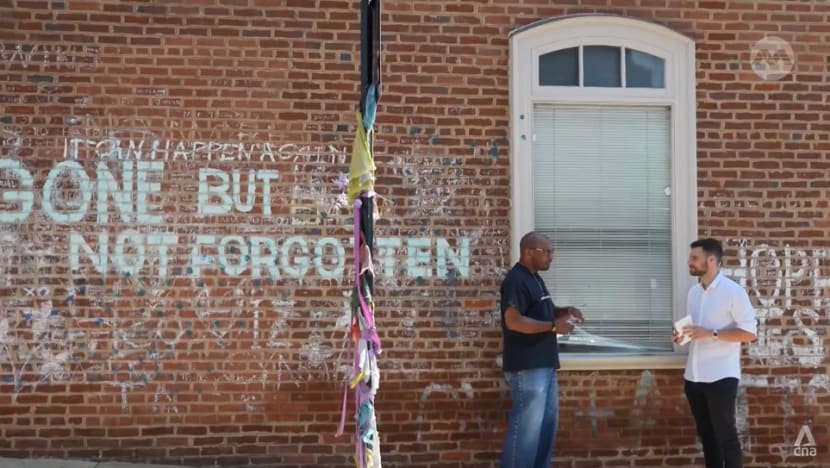Charlottesville residents still haunted by violent far-right rally, 6 years on
August 12, 2017 lives in infamy for the “Unite the Right” rally, a protest against the removal of a Confederate general statue in Charlottesville.

CHARLOTTESVILLE, Virginia: Six years after torch-wielding far-right white nationalists and neo-Nazis marched through the streets of Charlottesville in the United States, the community and country remain polarised, the city's residents said.
August 12, 2017 lives in infamy for the “Unite the Right” rally, a protest against the removal of a Confederate general statue in the Virginia college town still grappling with the legacy of slavery.
The Robert E Lee statue in the state’s capital Richmond, and hundreds of other Confederate monuments across the country, have long stirred controversy with many who see them as an offensive reminder to the US’ history of slavery.
While the statue was taken down in September 2021, four years after the violent march, residents said the events of that day still haunt those who bore witness to its horror.
CAPTURING THE TRAGEDY
Photographer Mr Eze Amos captured the violence through the lens of his camera.
Hundreds of neo-Nazis, white nationalist and Ku Klux Klan members, many carrying weapons and Confederate and Nazi flags, marched through Charlottesville chanting racist and antisemitic slogans.
A self-identified white supremacist deliberately drove his car into a crowd of counter-protesters, killing 32-year-old Heather Heyer and injuring dozens of others.
The 20-year old Ohio man was later sentenced to life in prison, and the road was renamed in Ms Heyer’s memory.
“It looked like a bomb had literally gone off right at that intersection,” said activist Don Gathers.
“I literally saw her soul leave her body. It was traumatic. It wasn’t like anything anyone should have to experience and certainly I'd never experienced in my life.

“I pray that we never have to name another roadway after someone because of such a thing.”
For years, Mr Amos’ pictures never saw the light of day, but in an effort to illustrate the resilience, courage and unity of his friends, neighbours, and strangers, he decided to finally show their stories through the power of photography.
While he is proud of his project, Mr Amos said that there is still work to be done.
“I want to say we have learned, healed and we’re moving towards a positive future. But unfortunately, as much as it pains me to say, we have not learned, we have not healed, and we’re still very much divided,” he said.
DONALD TRUMP'S RESPONSE
Then-president Donald Trump was asked to condemn the violence, but his response at the time sparked outrage.
“You had very fine people on both sides," he said three days after the far-right rally.
As the 2024 presidential election draws closer, there are fears that summer of hatred could be repeated.
Critics are concerned that Mr Trump, who is the Republican Party frontrunner for the next election, could return to the White House, further fanning the flames of hostilities.
The fear is echoed by some Charlottesville residents.
“We’re about to have another election. We are so emotionally charged," said Mr William Austin Jones III.
"My hope is that the country will own its responsibility. You can’t have reconciliation without truth," he added.
Some residents, however, believe in a brighter future.
Founding member and secretary of the Charlottesville Clergy Collective Michael Cheuk said: “We can show another way – come together even in the midst of our differences to work towards greater racial equity and racial justice.”












